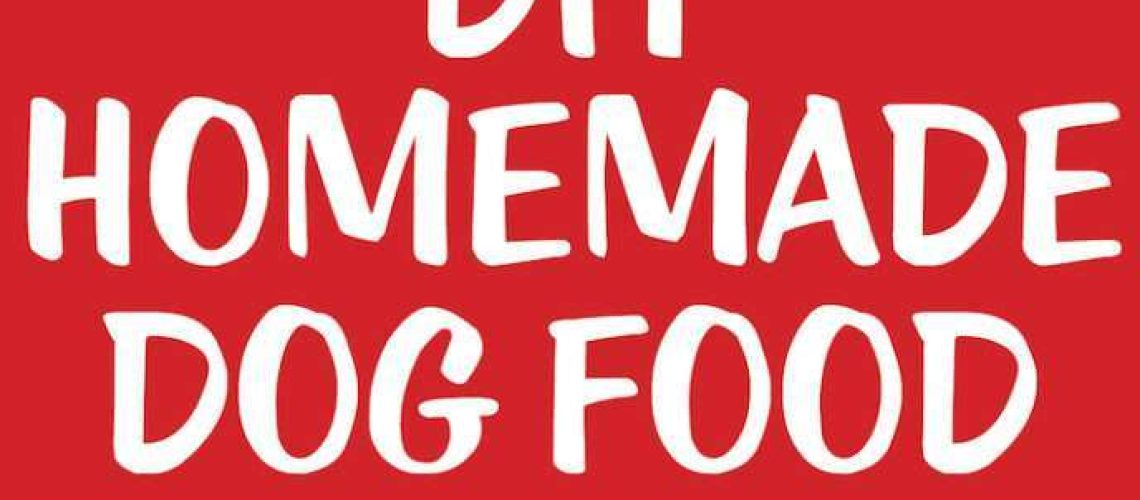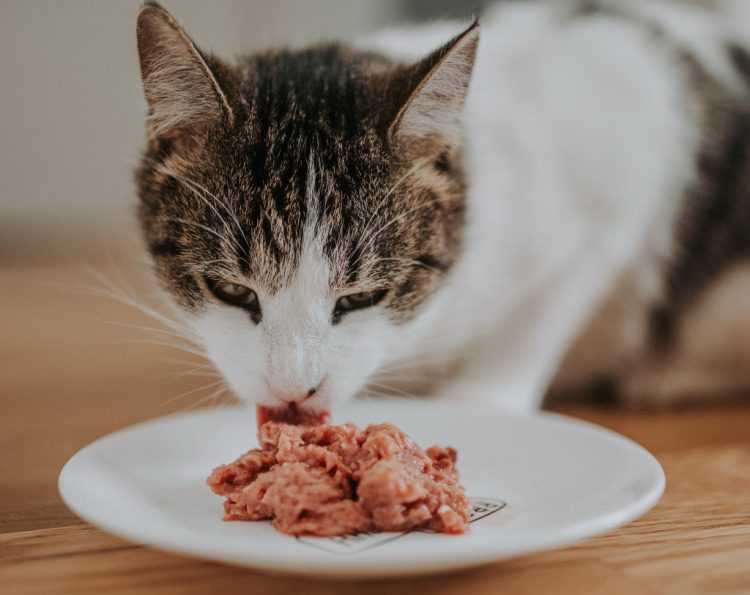Key Takeaways:
- Homemade puppy food can be a healthy and cost-effective alternative to commercial dog food.
- It is important to consult with a veterinarian or canine nutritionist to ensure the homemade puppy food meets all of the necessary nutritional requirements.
- A balanced diet for puppies should include high-quality protein, carbohydrates, fats, vitamins, and minerals.
- Raw meat should be handled and prepared properly to avoid contamination and potential health risks for both the puppy and humans.
- Puppies have different dietary needs compared to adult dogs, so it is crucial to adjust the homemade food recipe as they grow and develop.
Are you a proud puppy parent? If so, then you know how important it is to provide your furry friend with the best nutrition possible. That's where homemade puppy food comes in! By preparing meals for your pup at home, you can ensure that they are getting all the essential nutrients they need to grow strong and healthy. Not only does homemade puppy food offer numerous health benefits, but it also allows you to have full control over what goes into your dog's bowl. No more worrying about questionable ingredients or harmful additives! In fact, studies show that dogs who are fed homemade meals have a lower risk of developing certain health issues compared to those on commercial diets. So, if you're ready to take your pup's nutrition to the next level and give them the best start in life, join us as we delve into the world of preparing homemade puppy food. Get ready to unleash a whole new level of love and care for your furry companion!
Why Homemade Food is Important for Puppies
Health Benefits of Homemade Puppy Food
Making homemade food for your puppy can have several health benefits. When you prepare the food yourself, you have control over the ingredients, ensuring that your pup gets a balanced and nutritious diet. Commercial dog foods often contain additives, preservatives, and fillers that may not be healthy for your puppy in the long run. By making homemade food, you can avoid these potentially harmful ingredients.
Bonding with Your Puppy
Preparing homemade food for your puppy can also help strengthen the bond between you and your furry friend. Taking the time to prepare their meals shows them love and care, which can create a deeper connection. Additionally, feeding them homemade food allows you to monitor their eating habits closely and notice any changes in appetite or behavior.
Easy and Healthy Ingredients for Homemade Puppy Food
Protein Sources
Protein is an essential nutrient for puppies as it helps with growth and development. Some good sources of protein for homemade puppy food include lean meats like chicken, turkey, or beef. You can also include fish such as salmon or sardines, which are rich in omega-3 fatty acids that promote brain development.
Fruits and Vegetables
Fruits and vegetables are packed with vitamins, minerals, and fiber that contribute to your puppy's overall health. Some safe options to include in their meals are carrots, sweet potatoes, peas, blueberries, and apples. These provide important nutrients while adding flavor and variety to their diet.
How to Prepare Ingredients for Homemade Puppy Food
Cooking Methods
When preparing homemade puppy food, it's important to cook the ingredients thoroughly to ensure they are safe for consumption. Boiling or baking the meats and vegetables is a common method. Avoid using excessive seasoning or spices, as they may be harmful to your puppy's digestive system.
Proper Food Storage
After cooking the homemade puppy food, it's crucial to store it properly to maintain its freshness and prevent bacterial growth. Divide the food into individual portions and place them in airtight containers or freezer bags. Label each container with the date to ensure you use them before they spoil. Store them in the refrigerator for up to three days or freeze them for longer shelf life.
Essential Nutrients for Homemade Puppy Food
Protein
Protein is essential for muscle growth and repair. It helps puppies develop strong bones, teeth, and healthy skin and coat. Good sources of protein for homemade puppy food include lean meats, eggs, yogurt, and cottage cheese.
Fats
Fats provide energy and aid in the absorption of fat-soluble vitamins. They also contribute to brain development in puppies. Incorporate healthy fats into their diet by using ingredients like fish oil, flaxseed oil, or olive oil.
Carbohydrates
Carbohydrates are an important source of energy for active puppies. Opt for complex carbohydrates like brown rice, quinoa, or oats instead of simple sugars found in processed foods.
A Step-by-Step Guide on Making Homemade Puppy Food
1. Consult with your veterinarian: Before making any changes to your puppy's diet, consult with your vet to ensure that homemade food is suitable for their specific needs.
2. Plan balanced meals: Create a meal plan that includes a variety of proteins, fruits, vegetables, and grains to provide a balanced diet.
3. Prepare ingredients: Wash and chop fruits and vegetables into small pieces. Cook meats thoroughly until they are no longer pink.
4. Combine ingredients: Mix the cooked meats, vegetables, and grains together in a large bowl. You can also add supplements recommended by your vet for additional nutrients.
5. Portion and store: Divide the mixture into individual portions and store them in airtight containers or freezer bags. Label each container with the date and place them in the refrigerator or freezer accordingly.
Precautions and Safety Measures for Homemade Puppy Food
- Avoid toxic foods: Some human foods can be toxic to dogs, such as chocolate, onions, garlic, grapes, and raisins. Make sure to research which foods are safe before including them in your puppy's meals.
- Balance is key: It's important to provide a balanced diet that includes all essential nutrients. Consult with your vet or a veterinary nutritionist to ensure you're meeting your puppy's specific nutritional needs.
- Allergies and sensitivities: Be mindful of any allergies or sensitivities your puppy may have when selecting ingredients for their homemade food. Monitor their reactions after introducing new ingredients and consult with your vet if any issues arise.
Frequency of Serving Homemade Puppy Food for a Healthy Pup
Puppies require more frequent feeding than adult dogs due to their rapid growth and high energy levels. Generally, it is recommended to feed puppies three to four small meals per day until they are around six months old. As they grow older, you can gradually transition to two meals per day.
It's important to monitor your puppy's weight and adjust their portion sizes accordingly. Regularly consult with your veterinarian to ensure that you are providing the right amount of food based on their age, breed, activity level, and overall health.
By following these guidelines and providing homemade food tailored to your puppy's needs, you can contribute to their overall health and well-being while strengthening the bond between you and your furry friend.
In conclusion, preparing homemade puppy food can be a healthy and cost-effective option for pet owners. By using fresh ingredients and following simple recipes, you can provide your puppy with nutritious meals that promote their growth and well-being.
How do you make puppy food at home?
One option to consider when starting a homemade diet for a puppy is to include a combination of cooked lean protein (such as chicken, turkey, or fish) and cooked complex carbohydrates (such as brown rice or sweet potatoes), along with added vegetables for essential vitamins and minerals. It is crucial to consult with a veterinarian before beginning a homemade diet for a puppy.
Is homemade dog food good for puppies?
According to Larsen, it is a good choice for many pets to be fed homemade food. However, instead of using generic recipes found in books or on the internet, Larsen suggests consulting with a certified veterinary nutritionist. This recommendation was made on May 8, 2019.
What should the first 3 ingredients be in puppy food?
What are the most important components to consider when choosing dog food? The essential components to consider in dog food are premium proteins (such as chicken, beef, fish, and lamb), natural carbohydrates (whole fruits and vegetables), and beneficial fats (derived from animals or plants).
What not to put in homemade dog food?
When cooking meals for your dog, it is important to avoid a range of unhealthy and unsafe foods. There are certain ingredients that can be toxic and should be of particular concern, such as chocolate, xylitol, avocado, grapes, raisins, onions, garlic, and macadamia nuts.
Is it cheaper to make your own puppy food?
In certain situations, it may be cheaper to prepare your dog's meals at home, especially if you have a small dog. However, Simon advises that depending on the ingredients used, making homemade dog food could end up being more costly than buying it from the store. Additionally, it can be much more time-consuming.
What are the key ingredients for homemade dog food?
Protein, fat, carbohydrates, calcium, and essential fatty acids are all essential nutrients that your pet requires. These can be sourced from animal meat, seafood, dairy, eggs, oil, grains, vegetables, and certain plant oils. Calcium can also be obtained from dairy products or ingredients like egg shells.

















